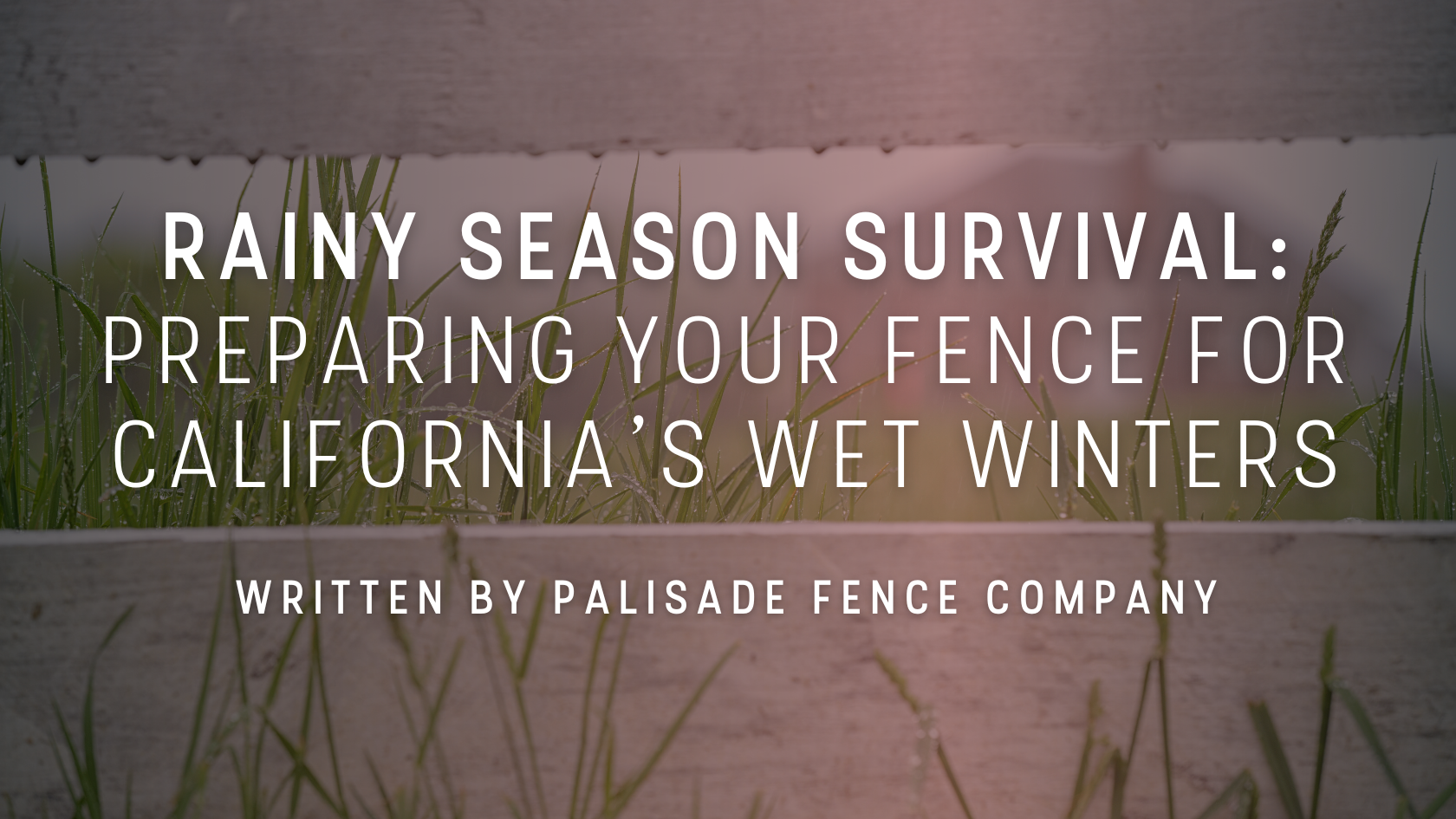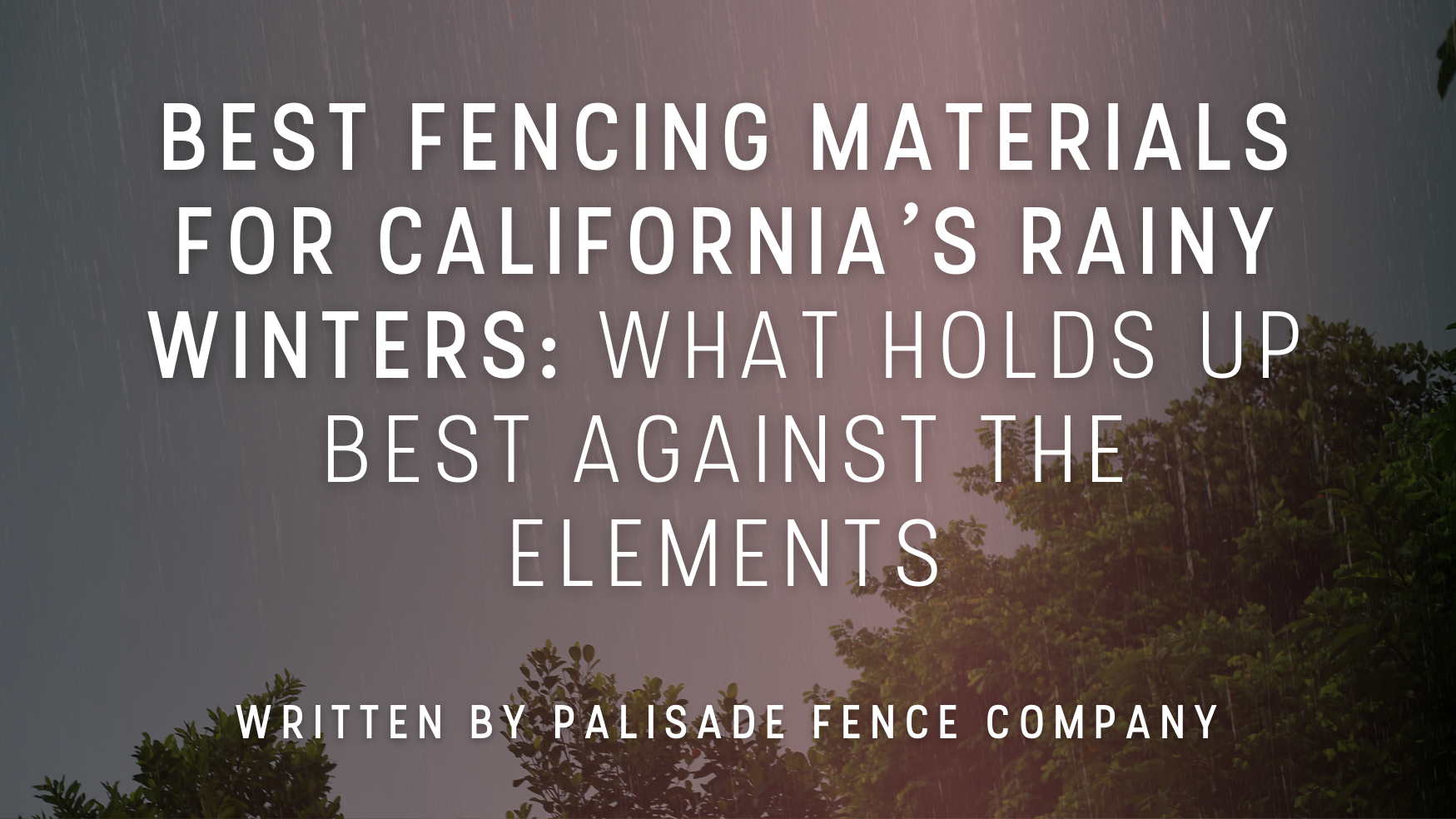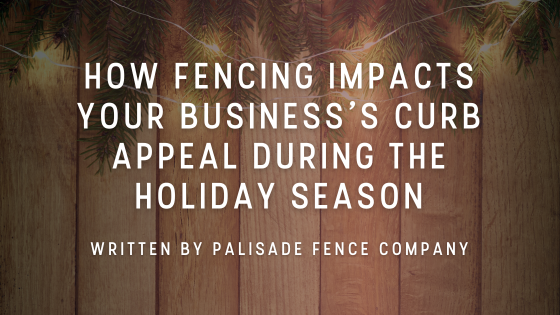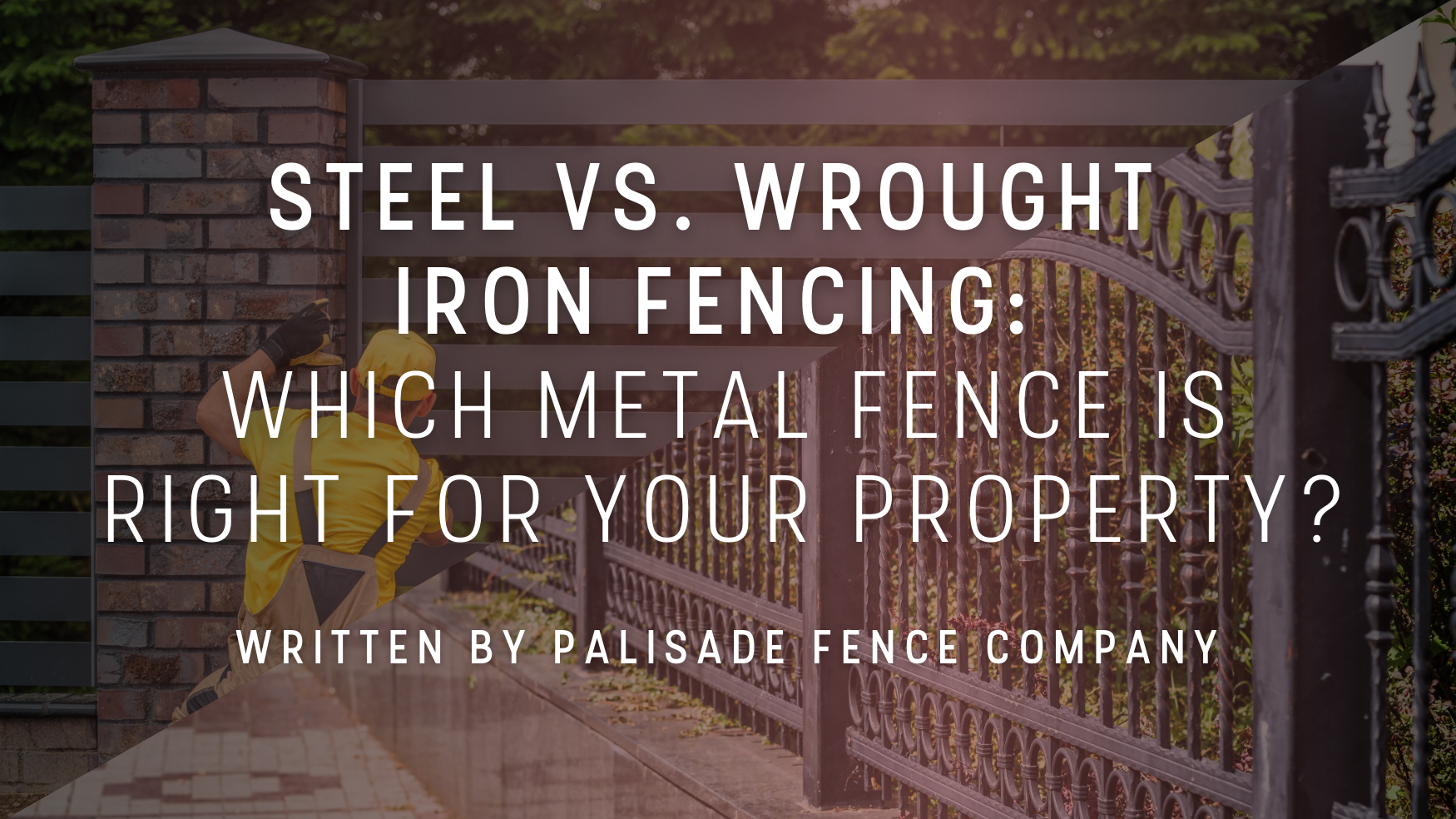Rainy Season Survival: Preparing Your Fence for California’s Wet Winters

California's rainy winters can take a toll on your fence if it's not properly prepared. In this blog, we’ll explore how constant moisture affects different types of fencing materials, from wood to metal, and what you can do to prevent damage. Learn practical tips for maintaining your fence during the wet season, including waterproofing techniques, drainage solutions, and early warning signs of weather-related wear. Protect your investment and keep your fence standing strong through the winter with these expert strategies tailored to California's unique climate.
Rain or Shine: Safeguard Your Fence from California's Wet Winters
When one pictures California, images of beautiful golden beaches and perpetually sunny skies flood the mind. However, anyone who's spent a winter in the Golden State knows that a significant amount of rain can surprise residents. One area where Mother Nature's damp disposition becomes evident is with fences. When rain consistently batters fencing, the damage can be seen over time, incurring high repair costs if not accurately tackled.
The Impact of Rain on Different Types of Fencing
Experience a raw Californian winter, and you'll soon realize that different fences respond differently to the onslaught of water. Wood fencing, for instance, becomes significantly affected. The copious amounts of water can cause the wood to soften, gradually leading to decay. This softening leaves the fence vulnerable to insects and puts it at risk of fungal disease, fuelled by the moist environment.
Metal fencing, though sturdy, isn't entirely immune to rain either. Over time, consistent moisture exposure can lead to rust and corrosion. Additionally, the aesthetic appeal of your metal fence could be at risk as rainwater may lead to discoloration and holes in the material.
Even composite fencing can suffer in rainy conditions. These fences may absorb water, causing them to swell and warp over time, leaving you with a fence that is neither visually appealing nor structurally sound. To combat these issues, investing in weatherproof fencing solutions can ensure your fence remains durable and protected, no matter what the winter brings.
Strategies to Protect Your Fence from the Rain
Several effective strategies can be implemented to protect your fence from the rain. A popular method is waterproofing. Using a fence stain and sealer regularly can provide an extra layer of protective coating that prevents excess water absorption and subsequent damage. This simple, effective method can significantly increase the lifespan of your fence.
Another way to protect your fencing investment is through practical fence drainage solutions. Proper grading ensures that water moves away from your fence instead of pooling around the posts, minimizing the risk of damage. Incorporating fence drainage into your maintenance plan helps prevent long-term issues like rotting or warping, keeping your fence sturdy through every rainy season.
Always remember that prevention is better than cure. Regularly inspect your fence for early signs of damage, such as warping, discoloration, or signs of corrosion. Early detection of possible issues allows for timely repairs, ensuring long-lasting protection for your fence from the relentless Californian winter rains.
Tailored Strategies for California's Climate
California boasts a unique winter weather pattern, famously fluctuating between drier periods and sudden, high volumes of rain. This variability can be extremely damaging to fences made from a wide range of materials and requires specific consideration towards upkeep and moisture protection.
California is a large state with vast climate variations. Coastal areas experience a damp, misty climate that can speed up the aging process of wooden fences. On the other hand, inland areas often face heavy rain spells, leading to rapidly deteriorating metal fences. Therefore, it pays to take local climate considerations into account when choosing the material and upkeep strategy for your fence.
Certain materials, such as redwood, are naturally resistant to fungi and insects, which thrive in high-moisture environments. These can be ideal for homes in coastal areas. Even though redwood is naturally resistant to the elements, it’s still strongly advised to regularly apply a fence stain and sealer to the surface. Meanwhile, vinyl and composite fences are often a better choice for households further inland, where hefty precipitation volumes concern homeowners. Redwood and vinyl are ideal because they tend to be natural weatherproof fencing options.
Protect Your Investment with Palisade Fence Company
Proper fence maintenance is often neglected, yet it is critical to ensure its longevity, especially given California's rainy winter climate. Emphasizing practical strategies such as waterproofing, fence drainage, and regular inspections can shield your fence from otherwise devastating weather-related damage.
Californians experiencing climate-specific issues with their fences will find suitable solutions with Palisade Fence Company. Our team possesses an in-depth understanding of the local climate and its impact on various fencing materials. With that knowledge, we provide tailor-made recommendations that uphold the beauty and functionality of your fence, regardless of the persistently wet winters.
Don't let the rain devalue or destroy your investment in a quality fence. Instead, safeguard it with meticulous care, appropriate weatherproofing, and professional insights. Trust in our expertise at Palisade Fence Company to guide you in protecting your fence against the unpredictability of Californian winters. Weather-proof your fence, amplify the attractiveness of your landscape, and secure your peace of mind all at once, only with Palisade Fence Company.











